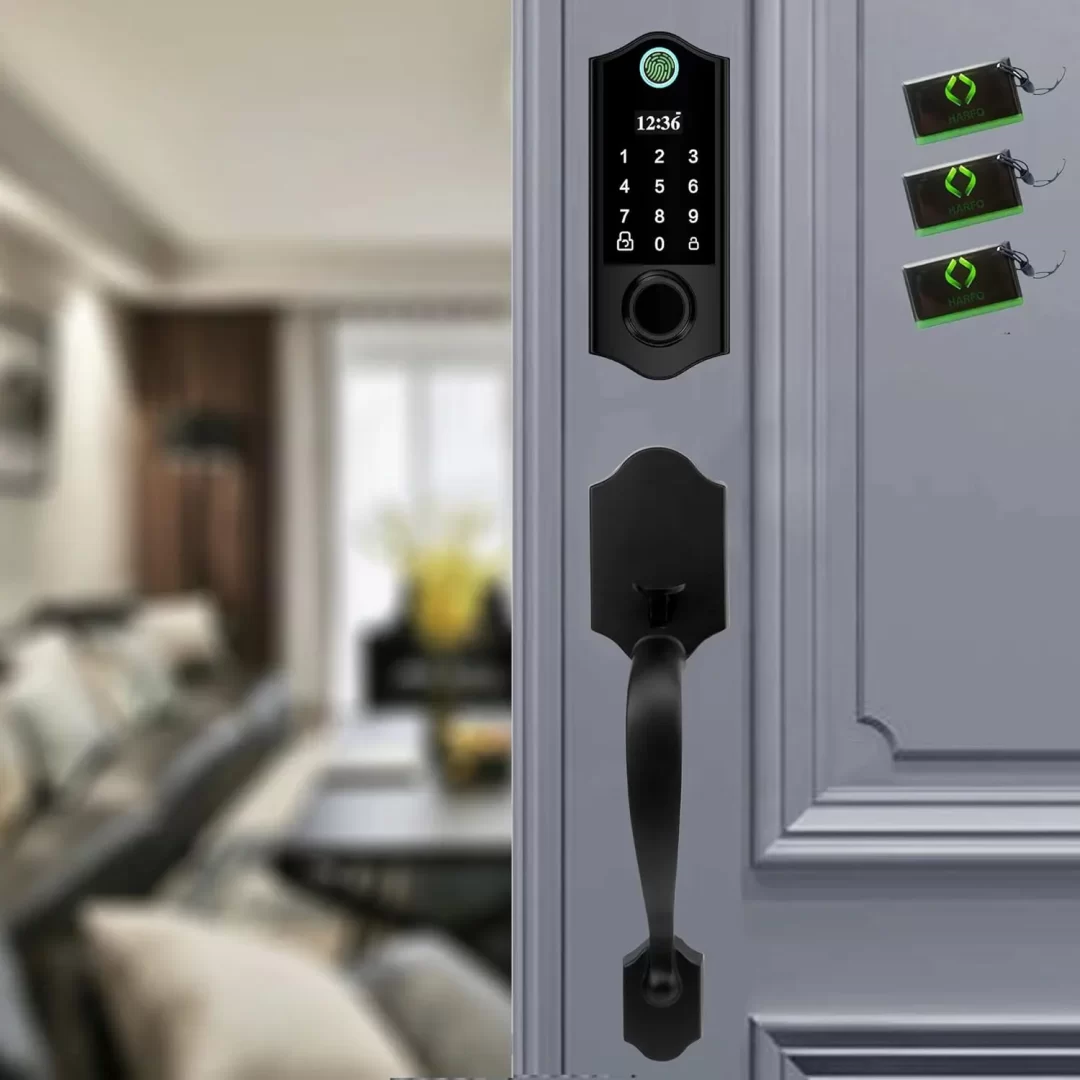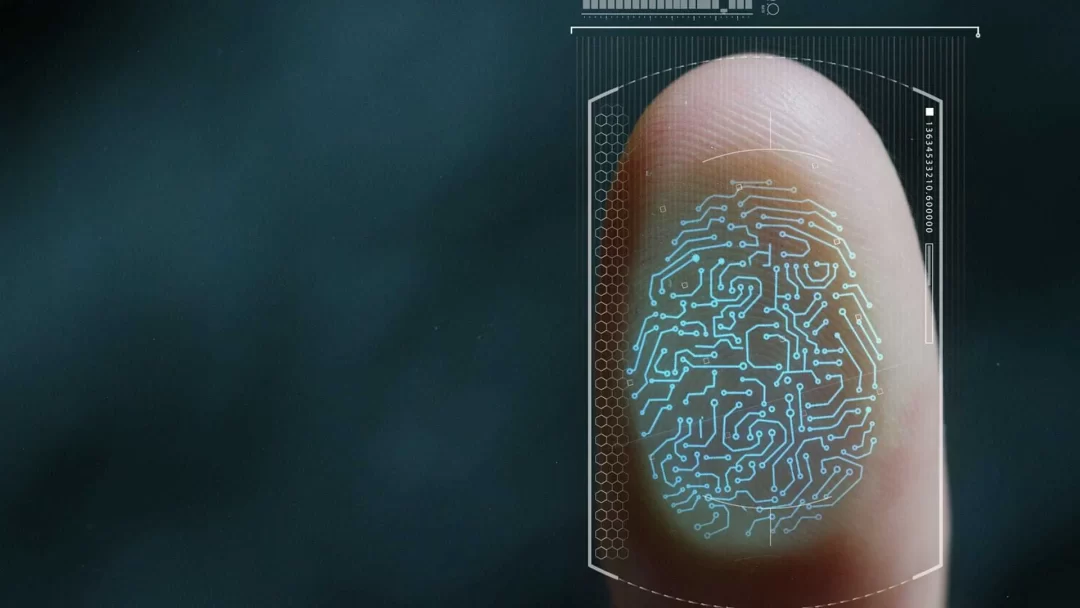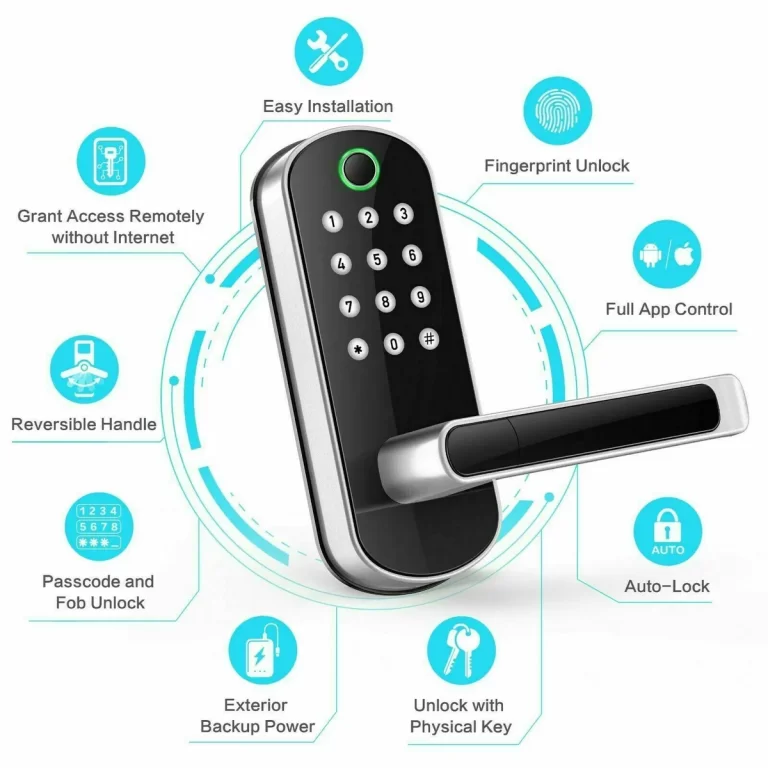What is a Fingerprint Door Lock Used for? Home Security
Wondering what a fingerprint door lock is used for? Discover its applications and benefits in this comprehensive guide. Learn how this technology is enhancing security and convenience.
In today’s fast-paced world, security and convenience go hand in hand. Traditional locks and keys have served us well for centuries, but as technology advances, so do our security options.
Fingerprint door locks, once the stuff of science fiction, are now a reality. But what is a fingerprint door lock used for? In this informative guide, we will explore the many applications and benefits of this cutting-edge technology.

What is a Fingerprint Door Lock Used For?
Let’s start with the basics. A fingerprint door lock, as the name suggests, is a type of lock that uses an individual’s fingerprint to grant access.
Instead of a traditional key or a numeric code, these locks rely on biometric authentication. When a person’s fingerprint is recognized, the door unlocks, providing a seamless and secure entry.
More recently the use of a fingerprint door lock has spread across many private and public organizations. For a better understanding let’s take a look at why and how these sectors use fingerprint door locks.
Various Applications of a Fingerprint Door Lock
Here are various ways a fingerprint door lock can be used optimally:
1. Enhancing Home Security
One of the primary applications of fingerprint door locks is in home security. These locks offer a level of protection that surpasses traditional locks. Here’s how:
Bolstering Entry Points: Fingerprint door locks secure your home’s entry points, such as the front door and garage. Intruders find it nearly impossible to replicate your fingerprint, making unauthorized access extremely difficult.
Keyless Entry: Say goodbye to fumbling for keys or worrying about losing them. With a fingerprint door lock, your unique biometric data is always with you, ensuring that you can enter your home effortlessly.
Visitor Access Control: You can grant temporary access to guests, service providers, or family members, and easily revoke it when no longer needed. This feature enhances security while maintaining convenience.
2. Commercial Applications

Fingerprint door locks are not limited to homes; they also have widespread applications in the business world:
Office Access Control: Businesses can use fingerprint door locks to restrict access to sensitive areas within the office. This ensures that only authorized personnel can enter, increasing security and confidentiality.
Time and Attendance: Some businesses use fingerprint door locks to track employee attendance accurately. Employees can clock in and out by simply scanning their fingerprints, eliminating the possibility of time fraud.
Data Centers: High-security facilities like data centers employ fingerprint door locks to protect valuable information. These locks are virtually impenetrable, providing peace of mind for data center operators and clients alike.
3. Educational Institutions
Educational institutions are increasingly turning to fingerprint door locks for various reasons:
Campus Security: Fingerprint door locks can enhance the safety of students and staff. Access to dormitories, classrooms, and administrative offices can be tightly controlled.
Library Access: Libraries often house valuable resources. Fingerprint locks ensure that only authorized individuals can access these materials, reducing the risk of theft or damage.
4. Healthcare and Hospitals
In healthcare settings, security and efficiency are paramount:
Patient Privacy: Fingerprint door locks are used to safeguard patient records and medical supplies. This ensures that only authorized healthcare professionals have access to sensitive information.
Medication Security: Medication rooms are equipped with fingerprint door locks to prevent unauthorized access to drugs. This is crucial in preventing theft and ensuring patient safety.
Restricted Areas: Areas with restricted access, such as operating rooms and laboratories, use fingerprint locks to maintain sterile environments and protect sensitive equipment.
Conclusion
In a world where security and convenience are top priorities, fingerprint door locks offer a compelling solution.
From enhancing home security to streamlining access control in businesses and institutions, these innovative devices have revolutionized the way we protect our spaces.
Their unmatched security and ease of use make them a wise choice for anyone seeking a reliable and advanced locking solution.
So, what is a fingerprint door lock used for? It’s about safeguarding what matters most with the touch of a finger.
READ ALSO!!!



